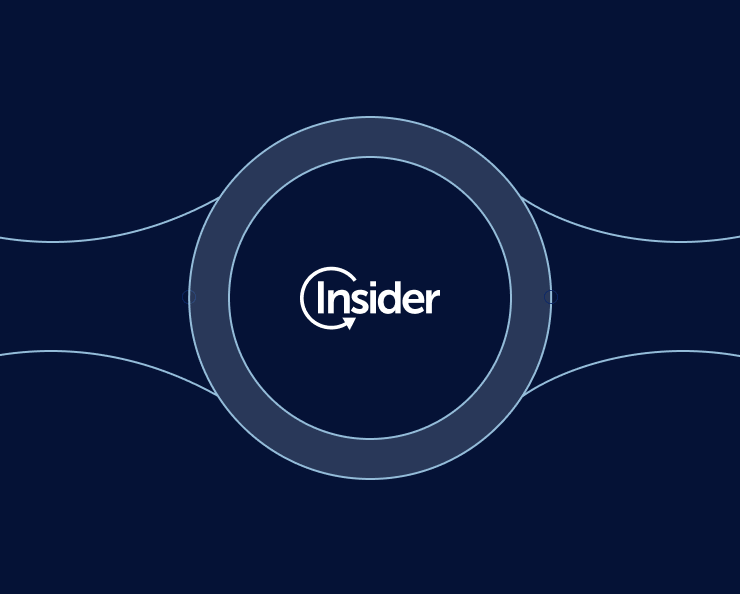Samsung, Uniqlo, and hundreds of other big firms use this startup to grab more customers




Singapore-headquartered Insider was born when its founding team realized there was a gap in the digital marketing space. When it came to applications that help online brands gain customers, existing offerings were either too expensive or only covered particular aspects of a company’s needs. For example, they help a website turn more browsing visitors into paying customers, but not attract those visitors in the first place.
Insider’s product, called Growth Management Platform or GMP, covers the gamut of a company’s sales process, from grabbing the customer’s attention to enticing them to come back. More importantly, it uses artificial intelligence and machine learning to do “predictive segmentation.” This means that Insider’s clients can get detailed insights on how to target the right customers with the right messages through the right avenues.
Founded in Istanbul in 2012, the marketing analytics startup crossed over to Asia Pacific by expanding its business in the region in 2015. Last year, it moved its headquarters to Singapore to better take advantage of opportunities in the Asian market.
The startup has managed to nab clients like Singapore Airlines, Uniqlo, Estee Lauder, L’Oreal, and more. To date, it has 300 customers worldwide and just this week raised US$11 million in a series B round led by Sequoia India.
Insider claims a 200 percent yearly growth rate in its revenue. The team declined to disclose specific numbers, but it said its valuation was around US$100 million in the last month.
The SaaS product works with a client’s system and customer data, yielding meaningful insights as early as two weeks in. This is because Insider’s enterprise clients usually have high traffic, which generates large amounts of information, co-founder and CEO Hande Cilingir tells Tech in Asia.
GMP works across online platforms, including desktop and mobile web, and mobile apps like online stores and messaging. Cilingir says it saves its clients from the need to set up their own data science and IT teams.
For example, sneakers firm New Balance managed to increase conversion rates by 556 percent through banners advertising holiday discounts. CNN Turkey saw increases in click-through rates on their homepage by using Insider’s tools to show different versions of the site to different audiences and collect data on their behavior.
Huawei and ecommerce startup Orami wanted to lure back customers who left items in their cart and navigated away from their sites – a very common problem in ecommerce. Both firms saw an increase in returning customers who completed purchases after receiving notifications that they had full carts waiting.
Other examples include using geofencing to send notifications about promotions or offers to users’ phones when they are near particular stores.
Therein lies one big downside of Insider’s technology, at least for consumers: getting bombarded with advertising notifications from all sides. Insider hopes that through its personalization and prediction systems, these messages target the right users who will find them useful, rather than spam people.
“Insider’s product can start yielding meaningful insights as early as two weeks in.”
As it handles a lot of user data for its product to work, Insider emphasizes that it doesn’t share data with third parties. When working with sensitive data for clients like financial institutions, it stores them on its clients’ own servers for extra security.
Insider is not alone in working with big data and AI for marketing insights and growth management. While they’re not direct competitors, Singapore’s Ematic uses AI to help ecommerce brands better market to their customers through email campaigns, while Crayon Data enables firms like banks and digital media companies to personalize engagement with their users through vast amounts of data. Big firms like Oracle also offer online tools for digital marketers that are similar to GMP.
Insider claims to have an edge by providing a tool for the entire process, from customer acquisition to retention, whereas most of the others address only specific parts. It also cites its predictive tools for targeting the right audiences and its relative affordablity as advantages.
According to GroupM, the media investment arm of advertising and marketing firm WPP, digital investment will account for 36.4 percent of total ad investment this year, surpassing TV ad investment in several countries. At the same time, Procter & Gamble – dubbed the world’s biggest advertiser – slashed US$200 million in digital ad spend in 2017 after determining that its ads weren’t reaching the intended audience.
Cilingir met co-founders Serhat Soyuerel and Arda Koterin at the London School of Economics. After graduation, Cilingir and Soyuerel wanted to set up a company of their own but decided to gain expertise in unfamiliar new markets first.
Cilingir headed to China, where she worked for companies like PepsiCo and Starmall. Her goal was to learn the language as well as the nuances of working in Asia. Soyuerel turned to Moscow, spending time in the investment banking sector.
After their journeys, the duo returned to Turkey and started an English language school, which they sold to a larger firm after three years, marking their first exit.
The three other Insider co-founders – Mehmet Sinan Toktay, Muharrem Derinkök, and Okan Yedibela – came together through common networks after stints at companies like Oracle and Rocket Internet.
Cilingir says that the founding team’s international outlook was pivotal to Insider targeting global markets from the get-go. “We wanted to have this mindset from the very first day,” she adds.
“The founding team’s international outlook was pivotal to Insider targeting global markets from the get-go.”
Within a year of starting up, Insider had expanded to eastern Europe with an office in Poland. A year later, it landed in the Middle East through Dubai and then started exploring Asia Pacific. Having this cross-border experience allowed the team to adapt its approach to each market in order to better sell its product.
Now Insider employs 240 people across 16 offices in Europe and Asia Pacific, including Tokyo, Seoul, Sydney, Bangkok, and more.
To get clients to come aboard, be they corporates like Samsung and Nissan or startups like Tokopedia, Insider offers trial periods and fast integration on web and mobile to show what the platform can do for them. “After that, the rest is easy,” Cilingir says.
Scoring international brands as clients also helps a lot with credibility. As she points out, “today customers do not buy products, they buy you and your intelligence. You need to show your dedication and your knowledge.”
Localized operations are also important, which is why Insider is beefing up its Asia-Pacific presence by moving its headquarters to Singapore. Eventually, the startup wants to gather all its operational and accounting functions in the city-state for easier management.
The Sequoia deal was a fortunate development that came at a time when Insider was not necessarily looking to raise money. But Cilingir thinks the VC’s considerable networks and market expertise will be a valuable asset for the startup as it grows.
The funding from Sequoia will help the company continue hiring with a focus on Asia Pacific and further improve its technology. It currently has two tech hubs in Istanbul and in Kiev – the latter team came aboard when Insider acquired local startup Infinitesoft, a team of 10 data scientists and big data developers. It wants to set up one more tech team in Asia Pacific, which Cilingir said will likely be through a similar “acqui-hire.”
They’ll “consider building something from scratch,” she says, if an acquisition isn’t possible. “It’s about meeting the right people at the right time.”